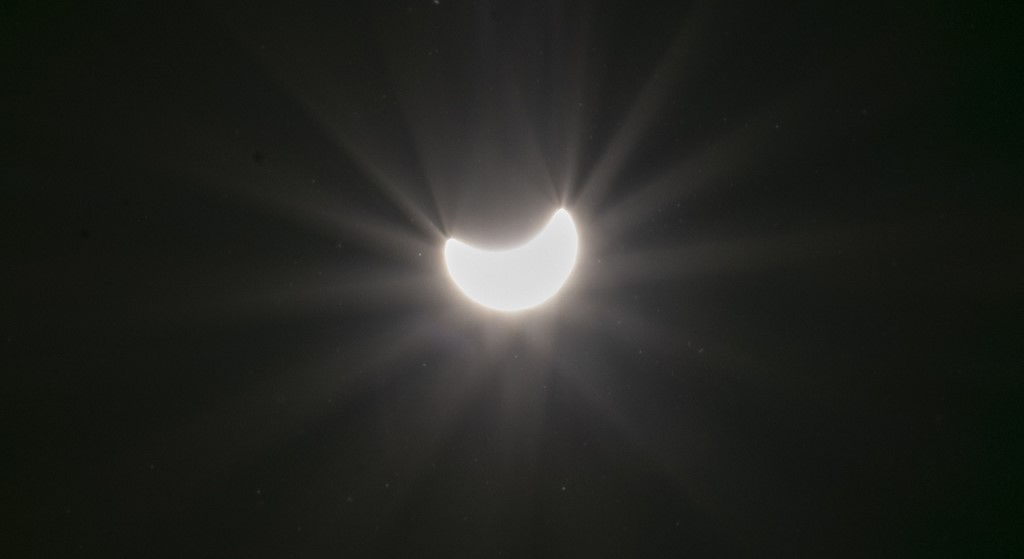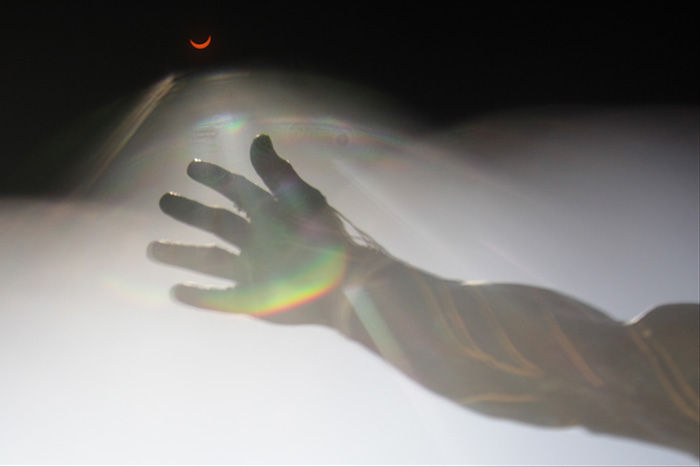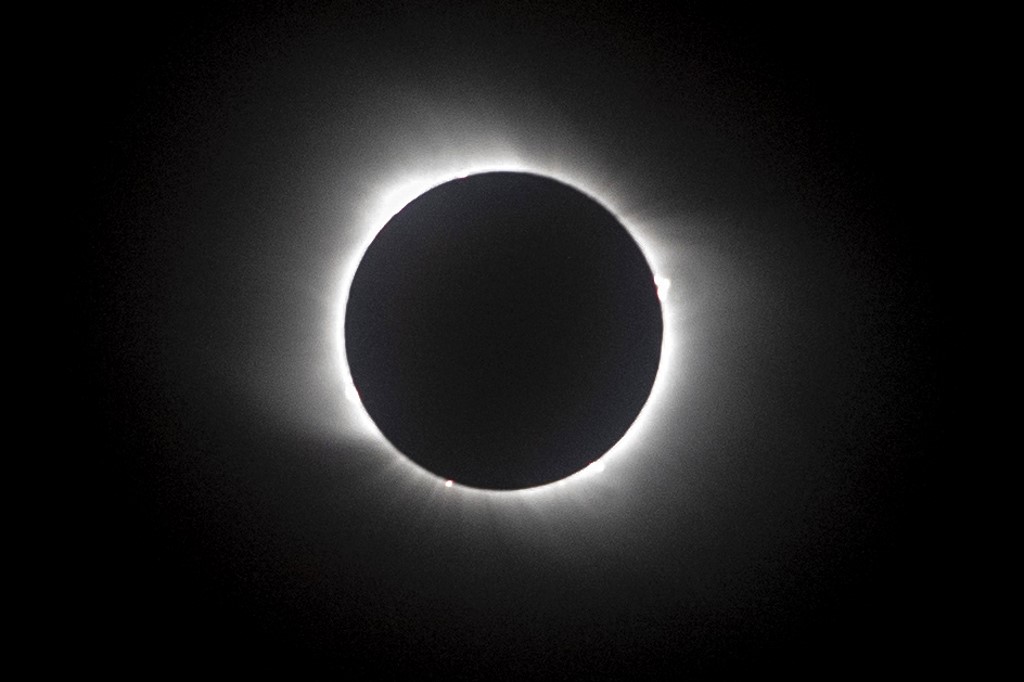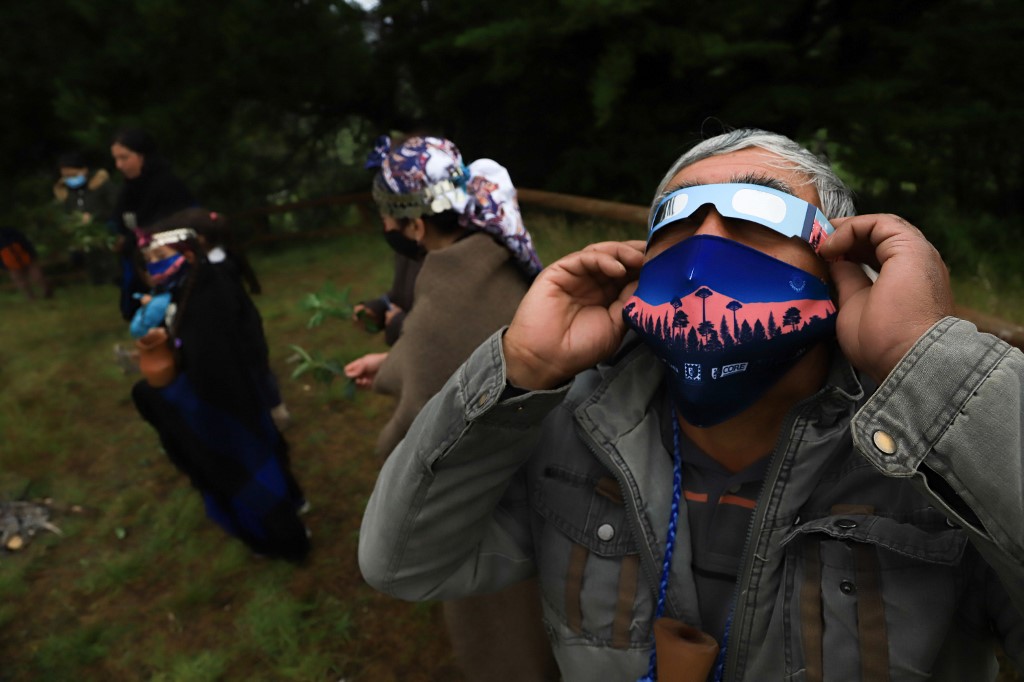We Just Had The Only Total Solar Eclipse of 2020, And The Photos Are Amazing

Thousands of individuals turned their heads to the sky to look at an eclipse that lasted around two minutes on Monday as southern Chile and Argentina were plunged into darkness.
Heavy rain had threatened to stop star gazers in Chile from seeing the eclipse but at the last moment, the clouds parted merely enough for the phenomenon to be partially visible.
"It was beautiful, unique. the reality is that no-one held much hope of seeing it because of the weather and clouds, but it had been unique because it cleared up just in time. it had been a miracle," an emotional Matias Tordecilla, 18, told AFP within the town of Pucon on the shores of Lake Villarrica.
"It's something that you simply don't just see together {with your|along with your} eyes but also feel with your heart," added Tordecilla, who traveled 10 hours along with his family to work out the eclipse.

The eclipse seen in Buenos Aires, Argentina on 14 Dec 2020. (Muhammed Emin Canik/Anadolu Agency via AFP)
It was the second occultation for Chile within the last 18 months.
This one struck at 1:00 pm (1600 GMT) as thousands of tourists and residents gathered, hoping the clouds would disappear in time.
"It gave me goosebumps everywhere," said Pucon resident Cinthia Vega.
In Argentine Patagonia, several families and foreigners had founded camp between the towns of Villa El Chacon and Piedra del Aguila hoping to determine the eclipse.
 The arm of a statue is seen as solar eclipse occurs in Santiago, Chile on 14 Dec 2020. (Cristobal Saavedra Vogel /Anadolu Agency via AFP)
The arm of a statue is seen as solar eclipse occurs in Santiago, Chile on 14 Dec 2020. (Cristobal Saavedra Vogel /Anadolu Agency via AFP)
While there was no rain there, strong winds had threatened to impact visibility.
Despite COVID-19 restrictions on movement, almost 300,000 tourists had arrived within the Araucania region around 800-kilometers (500 miles) south of the capital Santiago.
Dozens of amateur and professional scientists founded telescopes on the slopes of the Villarrica volcano - one among the foremost active in Chile - to look at the phenomenon when the Moon passes between the Sun and Earth.
 The total solar eclipse as seen from from Pucon, southern Chile, on 14 Dec 2020. (Martin Bernetti/AFP)
The total solar eclipse as seen from from Pucon, southern Chile, on 14 Dec 2020. (Martin Bernetti/AFP)
The eclipse was thanks to being visible along a 90-kilometer wide corridor from the coast in Chile across the Andes geological formation and into Argentina.
In July 2019, some 300,000 people clothed within the Atacama Desert in Chile's north, home to many observatories, to determine the previous eclipse.
Battle with evil force
Chilean authorities had been worried that the eclipse would attract large gatherings of individuals.
There are over 570,000 coronavirus cases amongst the 18 million population with almost 16,000 confirmed deaths.
Strict controls were announced for the areas where the full eclipse would be visible, with free movement banned both the day before and after.
This event was eagerly anticipated amongst Chile's Mapuche indigenous community, the most important such group within the country's south.
 A Mapuche indigenous family watch the eclipse in Carahue in southern Chile. (Mario Quilodran/AFP)
A Mapuche indigenous family watch the eclipse in Carahue in southern Chile. (Mario Quilodran/AFP)
"Today we were all hoping for a sunny day but nature gave us rain and at the identical time it's giving us something we want," Estela Nahuelpan, a frontrunner within the Mateo Nahuelpan community within the southern city of Carahue, told AFP.
"In Mapuche culture, the eclipse has different meanings: they discuss 'Lan Antu', just like the death of the Sun and also the conflict between the Moon and therefore the Sun," she said.
"It refers to the required balance that has got to exist in nature."
In another tradition, an eclipse signifies the temporary death of the Sun during a battle between the star and an evil force referred to as "Wekufu".
Indigenous people want to worship the Sun "like a God", astronomer Jose Maza told AFP last week.
According to indigenous expert Juan Nanculef, the people would light bonfires and launch "stones and arrows into the air" to assist the Sun in its battle against the Wekufu.
Nanculef actually performed a ritual because the eclipse began to ask nature to bring an end to the rains and make it visible.
"Previously it had been 100% effective," he said.
This time it seems to possess worked just to a tolerable degree to grant people a glimpse of the eclipse.



Comments
Post a Comment